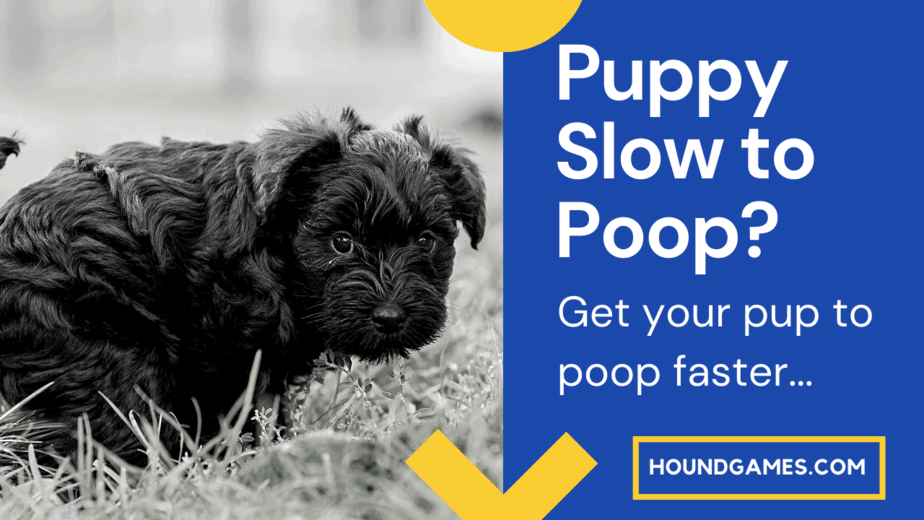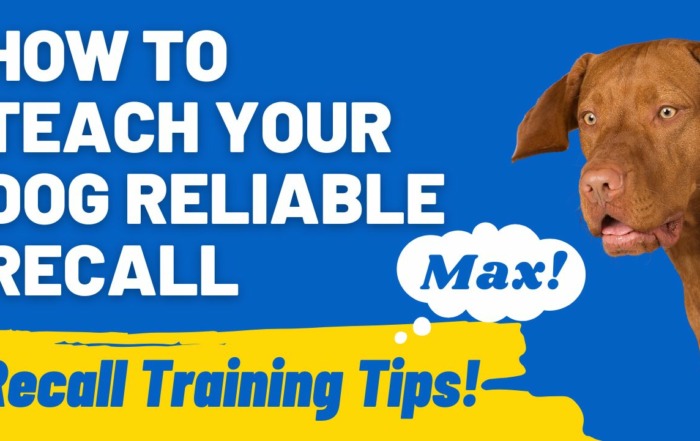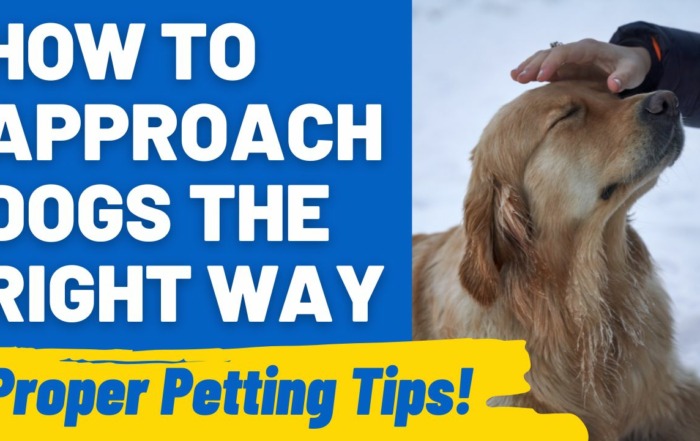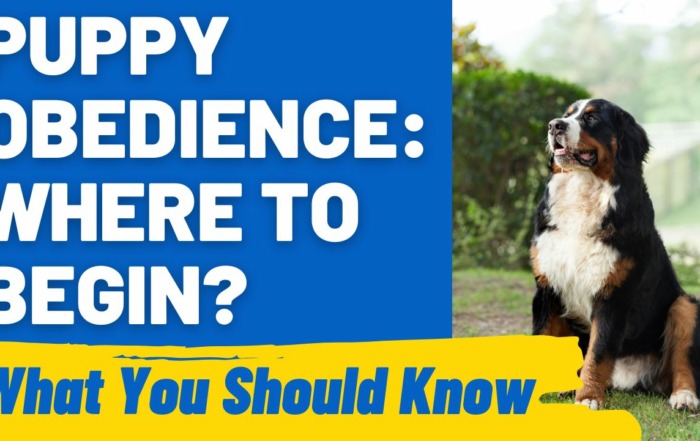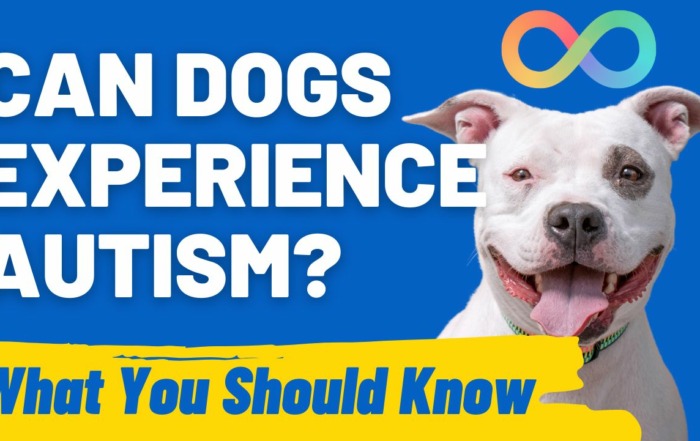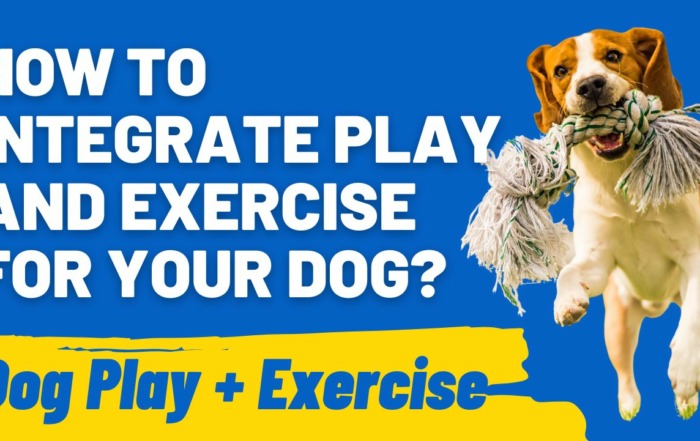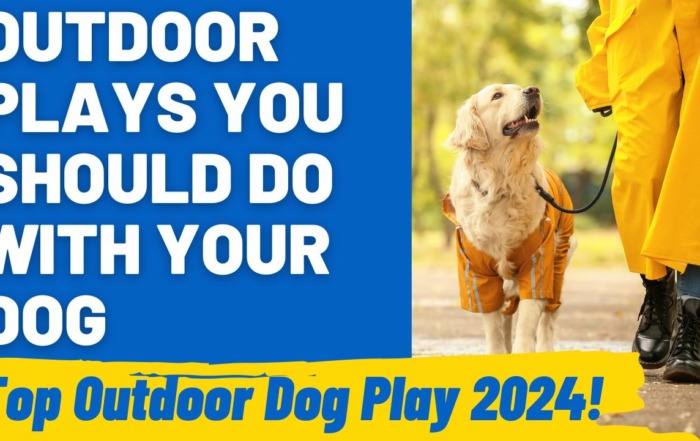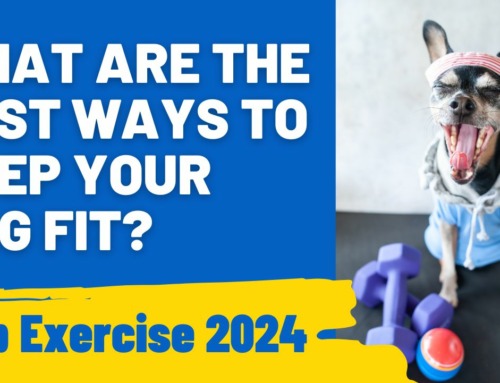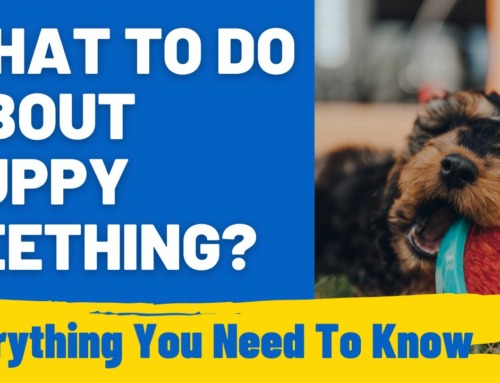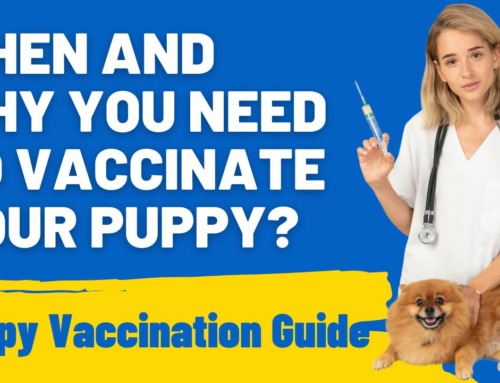We all know the dance of the pooping puppy. They sniff around and just when we think they have found a spot, a leaf flies by and they chase it. Often, we can be standing outside for what feels like forever waiting for our puppy to poop! It can be especially tiresome on those days where it is raining, or snowing, or especially on those days where you are late for work. So what the poop can you do about it?
How long should it take for a puppy to poop?
Once you take them outside, how quickly they will poop (if they need to) depends on a lot of factors. For instance, do they need to go yet? Puppies usually need to defecate about 15-30 minutes after eating. Eating triggers their gastro-colic reflex, which means eating stretches the stomach which stimulates the colon.
On average it will take a puppy 6 – 8 hours to digest a meal. Also, are there distractions outside? Likely there are. Sights, sounds, and smells will all distract your puppy from doing their business.
And then there is the case of the puppy that drags out the process. This often happens if you bring your puppy right back inside once they poop. Meaning poop equals the end of recess. Of course, this leads to some puppies learning to try to hold it forever – because as long as they hold it, they keep having fun!
You might also like to read our post, At What Age Do Puppies Stop Pooping at Night?
What to do if a puppy won’t poop after eating?
As puppies grow, they may not need to poop so quickly after they eat. However, if you want to be sure they poop before giving them more freedom in the house, there are a few things you can do. If they don’t poop after a meal, put them in their crate (or pen, or whatever you are using for preventing your dog from pooping in the house) for 15-20 minutes. After this time has elapsed, it’s time to try again. Repeat this process.
When I do this routine, I only allow puppies 5-minutes at most to try to go, otherwise, they often become distracted. This is especially good for those pups that like to drag out their time outside. It builds the need to have to go.
Once the puppy poops within that 5-minutes, play with them outside to prevent the association of pooping indicating the end of fun. And get your dog moving! This may mean a game of fetch or playtime with toys, or a walk.
If you get your puppy moving, their digestive track will too! I also find sniffing helps move things along. Get some treats and throw them in the grass, as this will get them using their nose to find them. Some dog owners also swear by doing a tummy massage.
With your dog relaxing on their back, you want to use the palm of your hand to gently massage the bare area of the tummy going counterclockwise, with small, circular motions. If the lack of pooping is really stumping you, make sure you note if there have been any schedule changes or changes in your puppy’s diet.
Both can affect poop habits. While a puppy may go one day without pooping, if your puppy goes longer than 48-hours, you will want to contact your vet.
If you’re concerned about how long your puppy is holding their poop, be sure to read our post: Puppy Hasn’t Pooped: How Long Can They Go? where we get into the more veterinarian view and medical side of things.
You might also like to read our post: Puppy Won’t Poop Outside.
How long can a puppy hold their poop?
The formula we use early on is 1-hour for-1 month of age plus 1. So a 3-month-old dog should be able to hold their feces for 4-hours. But once they reach 6-months they should be able to go 8-hours.
That said, sometimes a puppy will hold in their poop for longer. If this happens a lot, it should be mentioned to your veterinarian to make sure your dog is getting enough fiber in their diet.
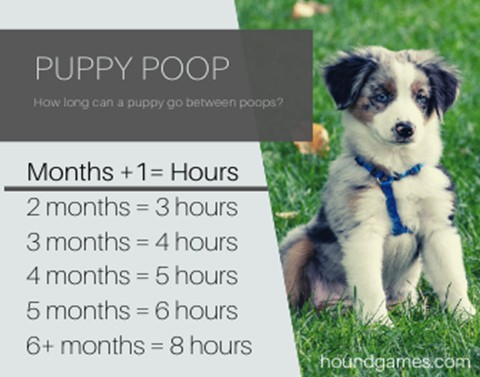
Why would a puppy resist pooping outside?
Many times a puppy will get distracted outside. They are too busy taking in their new environment. Or they might even be stressed by all the stimuli that they encounter outside. It’s best to find a nice quiet area, away from traffic, to poop.
Or, as mentioned above, they may equate doing their business, with the end of being outside. And most puppies love exploring outside. And some puppies are sensitive to weather changes, especially rain and snow. It can sometimes help to dig out a path in the snow.
And if they still resist, go out in the bad weather and throw some really yummy treats on the grass. Try to get the dog to think, “When it rains, it pours treats!” And it will change their perspective. One study also found that a puppy’s “hunt for the right spot” is affected by the Earth’s magnetic field.
This study suggests that a dog will prefer to poop with their spine aligned with the North-South axis of the Earth, under calm magnetic field conditions. If you have ever watched your dog on his long search for the perfect spot to poop and wondered, “what is he looking for?” Did you ever think the answer would be “the Earth’s North-South axis?”
How to get my puppy to poop faster
Puppies should be trained from day one to take care of business first. And there are a few ways to accomplish this. When you take your dog out they can spend 3-5 minutes sniffing. If your puppy does not eliminate, they go back inside and they are crated for 15-30 minutes. Repeat.
This increases their need to have to go. And eventually, they will go. After they poop, they can get some playtime outside. It also helps to take them to the same spot each time. This will create a scent post. So when they go back out to this same spot, they will smell that they’ve gone there before, and it will inspire them to poop there again!
You can also up the ante by treating them for pooping. As he “assumes the position” quietly praise him (you don’t want to get him so excited that he gets distracted from the task at hand) and when the task is complete, shower him with treats.
Adding a “go poop” cue
After 1-2 weeks of rewarding your puppy for pooping, you will see them stare at you expectantly when they start to poop. This is the magic moment where you can put pooping on cue! This will be helpful down the road to get your puppy to poop more quickly.
- Decide on a cue. It doesn’t matter what your cue is, as long as you are consistent with it.
- When they are about to poop and start looking at you expectantly, say the cue just once. At this point the cue means nothing to your puppy, you are just conditioning the cue.
- Praise them as they poop and treat them when they are done.
- Repeat. Conditioning a cue takes repetition.
- After a few weeks of conditioning, try giving your puppy the cue at a time when they normally have to poop.
Final Word
There are many reasons why a puppy may not want to poop. Most likely they are distracted. But to be sure you want to make sure to be on the lookout for signs of constipation that may need to be addressed medically.
If you think there’s a medical issue, read our post: Puppy Hasn’t Pooped: How long can they go? If your puppy tries to poop and nothing comes out, you will want to call your vet. Constipation can be caused by dehydration, digestive issues, or an underlying medical condition. Good luck and get that puppy pooping!
Recall Training Secrets: How to Teach Your Dog Reliable Recall
Teaching a dog recall is not just a basic obedience skill; it's a vital aspect of ensuring the safety and freedom of your beloved pet. Picture this: your dog is playfully chasing after a squirrel [...]
The Joy of Petting: How to Approach Dogs the Right Way
"Can I pet that dog?" is often the first thought that pops into our minds when we see a furry friend wagging its tail. The joy of petting a dog is unmatched, offering both the [...]
Puppy Obedience: Where to Begin? An Introductory Guide
Puppy obedience is more than just teaching commands. It's about nurturing a relationship based on mutual respect and understanding. It lays the foundation for a well-behaved adult dog and ensures a harmonious life together. In [...]
Understanding Canine Autism: Do Dogs Experience It?
Have you ever wondered, can dogs have autism? Autism, a complex condition often characterized by social and communication difficulties, is widely recognized in humans. But when it comes to our canine companions, the idea of [...]
How to Integrate Play and Exercise for a Healthier Dog?
Ensuring a healthy and fulfilling life for our dogs involves more than just regular feedings and routine check-ups. Integrating play and exercise into their daily lives plays a crucial role in maintaining their physical and [...]
Outdoor Adventures: How to Make the Most of Outdoor Play with Your Dog?
Engaging in outdoor play with your dog is more than just a fun way to pass the time; it's an essential part of their health and happiness. From frolicking in the local park to embarking [...]

